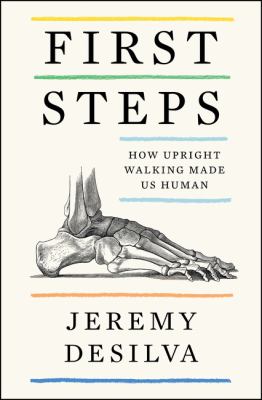
print
|
First steps : how upright walking made us human
Copies
1 Total copies, 1 Copies are in,
0 Copies are out.
Authors
Subjects
Language
English
Dimensions
24 cm.







